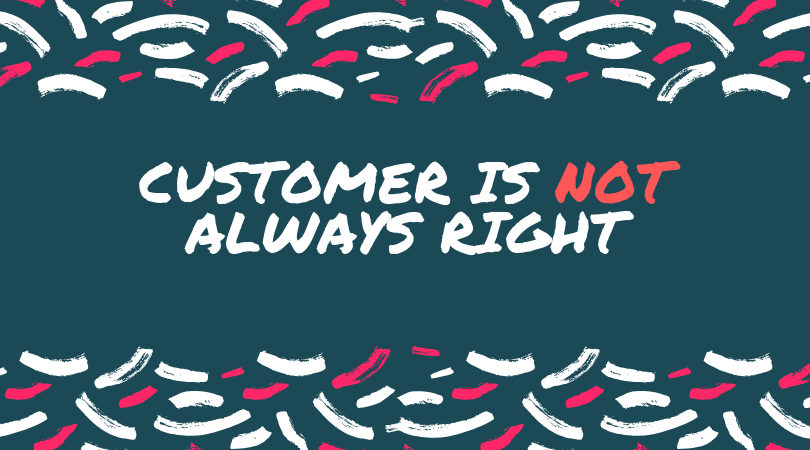サンタになりたい
"Daddy, what do you want to be in the future? I want to be a pilot."
寝る前に娘から言われてはっとした言葉。将来何になりたいかなんて、この年になると考えない。
無意識に年齢を言い訳にしている自分。そのことに気づかせてくれる娘。クリスマスキャロルのスクルージのようにつぶやく、「まだクリスマスじゃないか、まだやり直せる。」
10代のころ好きだった、電波少年の進め電波少年【アポなしサンタ】 - YouTube
クリスマスプレゼントをサンタの格好をしてアポなしで配って、翌朝の子どもの反応をビデオに収める。児童養護施設の子どもたちにも配る。翌朝のうれしそうな子供たちの顔を見て、僕は大人になったらサンタになりたいと思った。
僕が支援している重症児デイ ララ ベビーノ lit.link(リットリンク)からクリスマスカードが届いた。子どもたちの笑顔を見てほっこりする自分。
世の中の幸せの総量を増やすために、まだまだできることはあるはずだ。
クリスマスイブに思った、やっぱり僕はサンタになりたい。
今日が残りの人生で最初の日
今日が残りの人生で最初の日。
言い換えれば、
今が残りの人生で一番若いのだ。
「もう自分は年だから」
というのは
行動をしたくない自分への言い訳だ。
幼い時は自分が望まなくても新しいイベントが降ってきた。
大人になったら自ら動き、行動しない限り新しいイベントは振ってこない。
自分がビビッて緊張して、でもワクワクするようなイベントに出会うためには行動しなければならない。
4歳の娘と同じ目線で世の中を見よう。そしたら世界はまた違った景色で回りだすはずだ。
Today’s the day! It’s the first day of school
今日はまさにその日!それは初めての学校の日。
So many new things to learn and do
とってもたくさんの新しい事を学んだり行ったり
I’m so excited, but nervous too
とってもワクワクするけど、不安もある
But it will be ok on my first day of school
でも大丈夫!僕の初めての学校の日
Do you have your backpack? Yes I do!
リュックは持った? 持ったよ!
Do you have your shoes? Yes I do!
靴は履いた? 履いたよ!
Do you have your Lunch? Yes I do!
お弁当持った? 持ったよ!
Do you have your Teddy? Yes I do!
あなたのクマちゃん持った? 持ったよ!
Today’s the day! It’s the first day of school
今日はまさにその日!それは初めての学校の日。
So many new things to learn and do
とってもたくさんの新しい事を学んだり行ったり
I’m so excited, but nervous too
とってもワクワクするけど、不安もある
But it will be ok on my first day of school
でも大丈夫!僕の初めての学校の日。
Will you greet your teacher? Yes I will!
あなたの先生は素敵な人かしら? きっとそうだよ!
Will you make new friends? Yes I will!
新しいお友達ができるかしら? きっとできるよ!
Will you play some games? Yes I will!
いくつかゲームもして遊ぶのかな? きっとそうだよ!
Will you learn new things? Yes I will!
新しいことを学ぶのかな? きっとそうだよ!
Today’s the day! It’s the first day of school
今日はまさにその日!それは初めての学校の日
So many new things to learn and do
とってもたくさんの新しい事を学んだり行ったり
I’m so excited, but nervous too
とってもワクワクするけど、不安もある
But it will be ok on my first day of school
でも大丈夫!僕の初めての学校の日
Are you excited? Yes I am!
ワクワクする? うん!
Are you nervous? Yes I am!
ちょっぴり不安? うん・・・
Are you smiling? Yes I am!
笑顔になってる? うん!
Are you ready? Yes I am!
準備はいい? うん!!
Today’s the day! It’s the first day of school
今日はまさにその日!それは初めての学校の日
So many new things to learn and do
とってもたくさんの新しい事を学んだり行ったり
I’m so excited, but nervous too
とってもワクワクするけど、不安もある
But it will be ok on my first day of school
でも大丈夫!僕の初めての学校の日
Did you find your cubby? Yes I did!
あなたの棚は探せた? あったよ!
Did you hang your backpack? Yes I did!
あなたのリュックは掛けたかな? できた!
Did you give a hug? Yes I did! (lovingly)
ハグできた? できた!
Did you say goodbye? Yes I did!
バイバイできた? できた!
フィンランド渡航2日前
昔に比べてこの5年間は、自分の中では変化の少ない期間だった。
いや、客観的に見ればいろいろなことが起きた。
- 大企業退職
- スタートアップ参画
- 起業
- 結婚
- 子ども誕生
- 東京から伊豆へ引っ越し
- 事業売却から売却先での役員としての参画
客観的なイベントと自分の感じ方には大きく差があるということだろう。
明らかに大企業にいたころや留学中のころの方が自分の中での変化は大きかった。
それは常に圧倒的な不能感を感じていたからだ。
当時の自分は何もできなかった。何もできていないことが不甲斐なかった。
言い換えると、それは自分が環境を変え、周りの人を変え、アンコンフォータブルな場所に自分を置いているが故の結果だった。今はそれが乏しい。
人間が変わる方法は三つしかない。
一つは時間配分を変える、
二番目は住む場所を変える、
三番目は付き合う人を変える、
この三つの要素でしか人間は変わらない。
もっとも無意味なのは、「決意を新たにする」ことだ。かつて決意して何か変わっただろうか。行動を具体的に変えない限り、決意だけでは何も変わらない。
大前 研一(経営コンサルタント)|時間とムダの科学
学生の頃に出会った大前さんの言葉だ。僕はそれ以来これらを意識して行動してきた。
コンフォータブルゾーンにいる自分に変化をつけるためには、まずは環境を変える必要がある。
今週水曜日からフィンランドに行く。2か月間の滞在だ。
もっともっと自分を追い込む必要がある。住む場所を変え、付き合う人を変え、時間配分を変える。4歳の娘に負けないぐらい、人生の成長カーブの角度を上げ、2022が最も苦しく充実した年だったと言えるように。
自分へのルール(2020年バージョン)
1.苦しいほうを選ぶ。
これは最もわかりやすく実践しやすいルールだ。選択肢が複数あった場合は楽で心地よいほうは選ばない。怖くて辛くて苦しいほうを選ぶ。その先に成長と達成感がある。安易な道へは逃げない。
2.ありたい自分を演じる。
「男としてかっこいいか」を判断軸とする。「感情に流される自分」「言い訳をする自分」「他人や環境のせいにする自分」「人の悪口を言う自分」、これらの自分は男としてかっこいいとは到底思えない。そんな弱い自分に負けそうになったら自己を客観視して、問いかける。「この行動は男としてかっこいいか」「ありたい自分であるか」、そうすればシンプルに取るべき行動が見えてくる。
3.先頭に立つ。
誰かについていくことは楽だ。成功にせよ、失敗にせよ、前例がある。先頭に立つには勇気がいる。失敗するかもしれない。断られるかもしれない。批判されるかもしれない。しかし、先頭に立つ人がいるから、社会は進歩する。ついてくる人たちがいる。先頭に立つ勇気を。
4.自立する。
自分よりも大きなものに頼るのは楽だ。大企業という組織に頼れば、安定した収入が毎月振り込まれ、日本という国家に頼れば、英語が話せなくても快適に暮らせていける。そんな安住の地に満足せず、グローバルで自立した個として貢献できる存在を目指す。主語は自分でステージは地球。
5.ゼロになる。
年齢を重ねるとゼロになることを恐れる。プライド、経歴、学歴、様々な心理的要素・社会的制約が行動を制限する。それらを守ろうとするばかりで、その結果失う機会損失には気づかない。見えない機会を意識して、その価値を大切にし、ゼロになる勇気を持つ。
Journey to seek invisible hands on childcare
GAFA has been changing consumers' behaviors and eradicating old industry practices. Having worked at one of these firms, I retain a certain admiration for their strategies and timely implementations. That being said, this makes me wonder who will be dealing with domestic industries with Japan-peculiar issues, including childcare, elderly care, and agriculture. These sectors appear to have a foster-child-like status in the larger economy. Japanese bureaucratic systems are no longer effective in support of this business. Global tech firms are unlikely to influence Japan's unique social problems. This observation led me to believing that I should be the one who is to innovate the industry. I have working experience at global tech firms. Also I have worked in a global management consulting firm. I earned Master of Informatics as well as MBA. I am a complete newcomer to the childcare industry, but I think I may serve as a catalyst for improvement in the application of my skills to this field, something unimaginable for domain experts.
Innumerable startups and small businesses have been started in the industry. I imagine that some of them are only in the business to procure subsidies from the government. Others are driven by the personal frustration of their child-rearing experiences. My drive, in contrast, is the anger at the inefficient operations and vested interests. The fact that, as a child, I aspired to a career as a politician has probably had some effect on my own motivation. I will not be satisfied by solving mothers' problems. Rather, I would like to solve the supply-side issue to make the market work. This is what distinguishes me from other entrepreneurs.
I am searching for an 'invisible hand' that might enter this market. Conventional currency does not work well to move the hand , as it does in other industries. I think there are supplies and demands out there, but virtually biological factors keep them in abeyance. Mothers, specifically women during their maternity leaves or stay-home moms, feel a sense of guilt at outsourcing their work. Although women with child-rearing experience are willing to help new, like-minded moms nearby, they tend to hesitate to do so as they feel not qualified without a licence. Japanese people maintain a certain space among themselves, but they are willing volunteers if asked. I would like to stimulate their subconscious minds to encourage trading between suppliers and consumers with an innovative method. The essence of the problem is resolution regarding reduction of their psychological expenses.
THE SUPPLIER IS ALWAYS RIGHT

What are the products on a Consumer-to-Consumer platform? How does a given service bring new users into the fold? The answer is users. People base their decisions on joining or leaving a C2C platform on the attractiveness of the participants and the contents that the participants have on offer. Treating our users not only as consumers but also as suppliers should be paramount for us. The majority of C2C or social media services go down the tubes because their incentives for users, key to getting users to equip a platform with value, are inadequate. The platforms of most startups come with a fatal design "bug" in terms of incentivization. By all means, we must avoid this error. It is incumbent upon us to offer an incentive for users' work, in the same way Google and Amazon do. Google and Amazon consumers do not think of themselves as suppliers. Nevertheless, they do in fact provide data regarding their behavior and thus enhance the convenience and success of those platforms.
What kind of moms do we want to display in our shelves and how? How can we motivate them to participate?
These are important questions. Eliminating messaging bugs has been a real struggle for us. Even so, we can not lose sight of the fact that messaging, though important, is not a true differentiator.
オックスフォード受験の英語要件(IELTS)を最短で突破する方法

オックスフォード・ケンブリッジの大学院受験を考えた時に、最もネックとなるのが英語要件だろう。例えば、ケンブリッジよりも英語要件が厳格なオックスフォードのSaiid Business Schoolの公式サイトには下記のように記載されている。
TOEFL
- Minimum Score: 110
- Minimum required on each component: Listening - 22; Reading - 24; Writing - 24; Speaking - 25
IELTS
- Minimum Score: 7.5
- Minimum required on each component: 7.0
IELTSのほうがTOEFLよりも簡単という噂が日本人受験生の間では流れているが、それはオックスフォードの
- TOEFL110 = IELTS 7.5
という換算式においては正しい。
しかし、例えばUniversity of Virginia LL.M. の換算式では
- IELTS (全てのセクションで7.5) = TOEFL ( Listening - 26; Reading - 26; Writing - 24; Speaking - 22)
となっており、この場合はTOEFLで受験したほうが圧倒的に楽だ。IELTSでwritingを含めたすべてのセクションで7.5を同時に取るのは非常に難しい。純ジャパだと限りなく不可能に近いだろう。
つまり、IELTSとTOEFLがどちらが簡単かは志望校の換算式次第であり、その前提条件を抜きにIELTSとTOEFLがどちらかが簡単かを比較しても意味をなさない。多くのMBA受験、とりわけオックスフォード、ケンブリッジにおいてはIELTSを選択したほうが楽ではあることは確かだ。よって純ジャパで英語が苦手であればTOEFLは捨ててIELTSに集中するのが戦略的には正しい。
では、IELTSを勉強したときに、オックスフォードの英語要件を超えるための理想的なスコアは何か。僕が考える理想スコアは下記だ。
- Overall Score: 7.5
- R: 8, L: 7.5, W:7 (6.5からリスコアを狙う), S:7 (Wよりは簡単なのでリスコアなしで7以上を狙う)
IELTSでは受験生の統計データが公開しているが、IELTSのWritingは他のセクションに比べて難易度高い。IELTS writingで7が取れる受験生は他のセクションでは8以上をとっている印象だ。つまりIELTS でwriting 7を取る実力をつけるためには、overallで8を取るぐらいの実力が必要となる。

自分自身もTOEFL 98から鞍替えし、IELTSを受験し始めて、あまり勉強もせずに3回であっさりとoverall 7.5は達成した。しかしそのあとにwritingが7になかなか届かず、苦労した。
ここで実は1つ裏技がある。それがIELTSのRemarking(Enquiry on Results)だ。IELTSではTOEFL同様、スコアに納得がいかない場合には、再採点を申し込むことが出来る。僕自身は利用しなかったが、利用している人たちを見ると高い確率でWritingかSpekingのどちらか、もしくは両方のスコアがアップしており、下がっている人は一人も見たことがない。ReadingとListeningでは採点者の主観が入り込む余地が少ないので再採点の意味はほぼないが、WritingおよびSpeakingにおいては試してみる価値は大いにある。採点者が人間である以上、主観の排除は不可能であり、再採点が要求されたという事実から、スコアを上げる心理的圧力が再採点者に働いていると推測してる(再採点者はそれが再採点依頼だとは知らないとも言われているが、僕は疑わしく思っている)。
よってオックスフォード受験における英語の最適な戦略は下記の通りとなる。
- TOEFLではなくIELTSで受験
- ReadingとListeningで7.5以上を狙い、高得点で安定させる
- WritingとSpeakingで6.5(場合によっては6)が出たら、即リスコアを申し込む
上記を淡々とこなしていけば、最低限の英語力 (TOEFL100程度、TOEIC950程度)があれば、オックスフォードの厳しい英語要件を満たすことも現実的であろう。
Career is no longer a linear progression

After having changed my role and employer several times, I came to believe a traditional, linear career progression is no longer valid. I found an article that validates my thought. "Your career is more like an iPhone than a ladder," says a ex-Google career coach. This is very true. One of my former seniors at a consultancy is now leading another global consulting firm as the CEO of the Japan office. He was a mere manager seven years ago. However, even when he was in a common position, he acted differently from the way other managers did. Eventually, he skipped climbing a corporate ladder to become a CEO while others were focusing on the regular path. Establishment of his self-branding image, up-for-everything attitude, and confidence contribute to his success. He could not have achieved this if he had been following others.
A younger worker at the consultancy I once worked for raised 3 billion yen from VCs to get his startup going. Managers there were quick to get down on his case. I have my doubts regarding his capabilities as a consultant, but there can be no doubt as to his great talent at getting a business up and running. His company is one of the most promising startups in Japan and shows up hundreds of news media outlets, both in Japanese and English. Back in those days, those of us surrounding him had no inclination to hear him out on his ideas or make measured business judgments on them.
Both passed on the corporate ladder so as to leapfrog their way to where they are today. These two characters were great exemplars for me. There is no guarantee that diligence in an ordinary career path will take you to where you really want to go. You are the one to decide which app, "skills" that you will download and manage to reach your goal, just as being mentioned on the above article. You are the one who makes your own "career" smartphone. Pursuing a career is no longer a linear progression but something more like infusing your portfolio with ecstasy and enthusiasm. The opinions of others, simply because they are older, are not particularly relevant. If they are not in a line where you want to be, it's better to ignore them.
All of this made me reflect upon my Oxford admissions essay, "I Want to Be a Nail that Sticks out and thereby Envision the Future and to Inspire Others" in a culture of "a nail that sticks out to get hammered down." My nontraditional career path must look inconsistent to common people, but I want to demonstrate a new way of career styles to others by my action. If we are to pioneer the future in the face of conventional wisdom, we must show our grit with our actions and eschew hollow truisms.
Traction is king for startups

Traction is king for startups. This is what I have been feeling recently. A myriad of startup services and ideas have come my way since I took the first steps on my own my startup journey. All of them seem dull and unpromising, and they should probably be that way by nature. If these ideas look brilliant and promising, somebody else including a big corporation with enough capital has commercialized them already. It's easy to criticize a service from a safe place as a member of an audience. If one is to become an entrepreneur, courage to face the music for immaturity in one's dull and unpromising service is essential.
What is a thing to transform such an unpromising business idea to a promising one? This is traction: to have a set of measurable users. People, including VCs or angel investors, cannot judge a new business model. Only traction can convince them. This is a reason why I am in a hurry to release our alpha service as soon as we can. I can tell why entrepreneurs are often recommended full-time commitment. You cannot stay positive when you receive hundreds of negative opinions on your unprecedented idea. You must give it your all when the time comes for the release of your minimum viable product at utmost speed, meanwhile paying less attention on external noise, and then make upgrades depending actual user feedback.
This is something that people have to unlearn. To maintain the company reputation in a big corporation, you are not encouraged to make a mistake. This means you must demonstrate the viability of a theoretical concept with market data. By contrast, risk aversion is worse than error in the world of startups. Since your endeavor is novel, you will have no market data at your fingertips. To challenge conventional wisdom is the essence of startups per my definition. One must accept pain when building a startup, but there is excitement that is also to be had.
オックスフォードMBA コーヒーチャットで思い出した想い

Affinity英語学院の飯島先生に誘われて、 オックスフォードMBA 志望者向けのコーヒーチャットに行ってきた。僕は普段はあまりこういうイベントには参加しないことにしている。というのも、英語力要件が世界で最も厳しいスクールであるオックスフォード大学の学生の英語力はとても高く、僕はその環境に圧倒されて、留学前に思い描いていたような留学生活を送れなかった。そんな僕は人前で「できない自分と向かい続けた」留学生活を語ることを避けてきた。
ではなぜ今回参加することにしたかといえば、受験時代にお世話になったAffinity英語学院の飯島先生からメールでのお誘いを受け、卒業生、進学予定者、進学に興味がある人たちでの、カジュアルな飲み会ということだったため、気軽な気持ちで参加をしてみることにした。
ただし、実際は8人ほどの受験生が集まっており、進学予定者は0人、卒業生は2人というメンツだった。当初の話と異なると思いながらも、進学希望者の話を聞いているうちに5年前の受験生だった自分の想いが蘇り始めた。
「ビジネスはあくまでも世界をよくするためのツールに過ぎない」
「資本主義は重要だが、目的と手段をはき違えてはいけない」
「エリートとは経歴や学歴ではなくて、他の人のために立ち上がれる人のことだと思う」
「出る杭が打たれる文化の中で出る杭でありたい」
「本当に大切なことは数字では表現されない」
「給与上昇率とかランキングとかはどうでもいい」
「オックスフォードはオックスフォードだから」
アルコールもない、コーヒーショップのオープンスペースなテーブルで、10代のように熱く語っている自分がいた。それをメモを取りながら必死に聞いてくれる受験生たち。お互いの発言に頷きあう卒業生。ビジネススクールではなく公共政策大学院の話ではないかというような会話。必死に聞く受験生の中には5年前の自分がいるような気がした。
そして5年前の自分とは異なっている自分がいることにも気づいた。
「自分の能力を高めることるよりも、人々に機会を提供することのほうが喜びが大きい」
「大切なのは勝つことではなくて、挑戦する機会にすら恵まれなかった人々がいるということに気づくこと。その機会が得られた自分の環境に感謝すること」
「諦めた(明らめた)時に本当に自分が人生をかけてすべきことが見えてきた」
「努力で超えられない現実を嘆くのではなく、自分が持っている能力でできることを考えている」
「オックスフォードの留学で得た一番の収穫は何ですか」という質問に、僕は「努力ではどうにもならない自分の限界を知ったこと。その時に新しい世界が見えてきた」とこたえた。自己成長信仰から解放されたきっかけといってもよいかもしれない。自己成長信仰から解放されたときに、僕はもっと人生をかけてやるべきことが見えてきた。自分1人が成長することよりも、困っている人々に機会を提供し、一緒に前に進めた時のほうが充実感は大きい。
自分ではない「何か」という存在になりたがっていた5年前の自分。限界ある自分という存在を活用して社会に「何か」を提供したいと思っている今の自分。
5年前に見ていた夢の続きが見たくなった。その続きはあの時よりも、ぬくもりがあって、柔らかくて、ほっとできる、リアルな夢だ。
